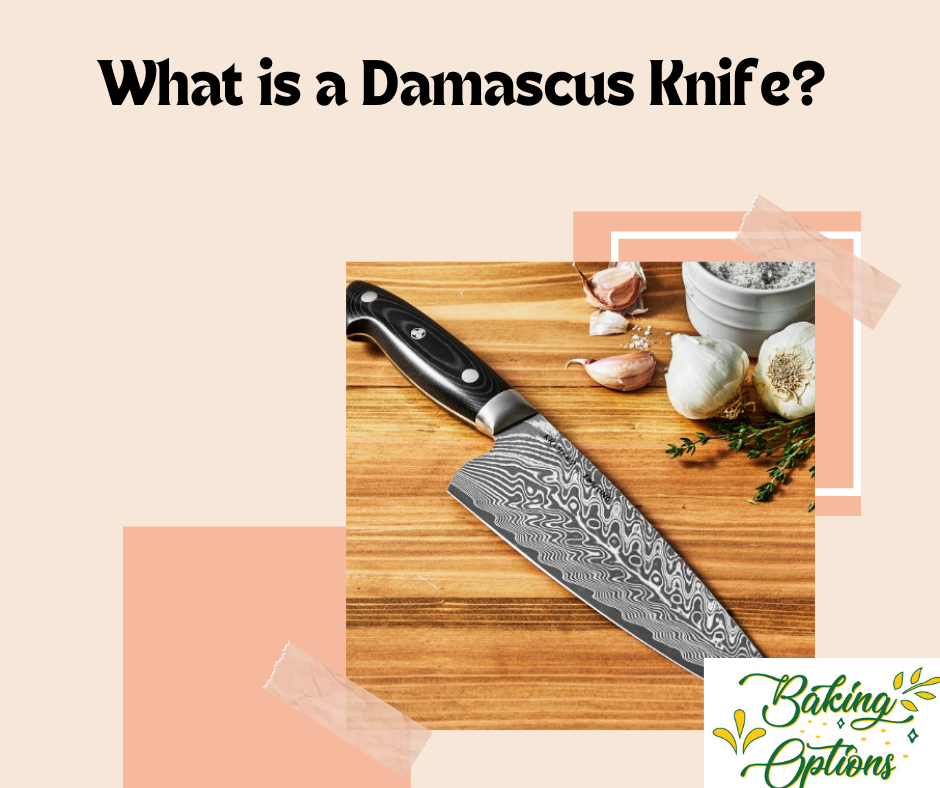A Damascus knife is a type of knife made with a unique process. Its cutter design, harshness, & edge maintenance make it useful. Well, Damascus knives are prized all over the globe by chefs, adventurers, and collectors for their extraordinary performance and attractiveness (I mean that beautiful flower design).
They reflect a perfect fusion of practicality and artistry as timeless symbols of skill and elegance. Rigid steel is for a razor-sharp edge, while softer steel adds flexibility and durability, creates a perfect harmony of precision and protection.
Damascus knives deliver exceptional longevity, interpretation, aesthetics, and gifts for those enamored by excellent-bladed tools.
Contents
The History of Damascus Steel
Origins in Ancient Times
Its origin dates back to around 300 AD. The Indian people produced this steel and traded it around the Middle East. When this steel reached Damascus, the native artisans had long mastered the craft of hammering this steel into blades that, when sharp and of excellent durability, were also remarkably beautiful.
Trades in these blades became so lively that the very name Damascus started to be attached to this singular type of steel.
The lost art.
By the 18th century, people had lost the original technique for making Damascus steel. However, many people remain drawn to its unique qualities.
Today’s products may not be the same as older ones, but they still have some features that make the older ones outdated.
What is The Best Use of a Damascus Knife?
I have had this knife available for a long time, and I bought another similar knife some time ago. In addition, I have a knife kit that includes this knife, so I have three knives. It’s my favorite knife because I can perform almost every kitchen task with it.
- Chopping Vegetables and Fruits: A thin, exceptionally sharp blade glides seamlessly through the fruits and vegetables.
- Carving and Slicing Meats: They cut meats into clean, neat slices, and sun damage on the texture of foods such as meat is not an issue with Damascus blades.
- Fish and Sashimi Prep: Raw seafood delivers excellent and easy cuts and makes the items appealing.
- Herbs and Garlic: The thinness prevents sticking and bruising that crush flavor compounds.
Advantages and Disadvantages of Damascus Knives
This report establishes that Damascus knives are beautiful tools that offer superior performance.
Pros
- Exceptional Sharpness
Because of the layering of different types of steel, the Damascus knives usually boast of sharpness. This makes it easy to chop foodstuffs such as vegetables or even fillet fish, which requires sharp blades.
- Durability
One advantage of the layered structure is that it adds durability to the material. They are not easily bent or broken and can serve their purpose daily or even in industries since they do not require constant replacement.
- Aesthetic Appeal
All Damascus knives exhibit patterns from the forging process, giving each piece an artistic merit. They are not only simple instruments but jewelry pieces at the same time.
Cons
- Higher Cost
Due to their complex production process, they are more expensive than expected nickel stainless steel or carbon steel knives, which may further limit those willing to purchase them.
- Maintenance Requirements
It is important to clean and store Damascus knives correctly to prevent rusting. They should be washed and drained after use. Sharpening is required now and then for better results.
How to Know About a Fake Damascus Knife?
Damascus steel is the best knife among chefs due to its unique appearance and strength. Many low-quality fake Damascus knives are available for purchase. Here are four easy ways to tell if a Damascus knife is real or fake:
- Check the Pattern on the Blade
A true Damascus blade has a wonderful pattern created by layering and welding different steel types together, which often features swirls and waves. Should the pattern seem stamped or even drawn on a knife, this is artificial and lacks the depth and aesthetic appeal of a proper Damascus blade.
- Test for Blade Hardness
Real Damascus steel is complex and can retain a sharp edge. You can test its hardness using the Rockwell hardness scale, which measures how hard the steel is. A real Damascus knife usually has a hardness rating between 58 and 62. If it’s lower than that, it might be a fake.
- Look for Layers in the Blade
The layers in a real Damascus knife give it strength and its look. You can often see these layers if you look closely at the blade, especially along the edge or under a magnifying glass. A fake knife may have fewer layers or none at all.
- Consider the Price
A proper Damascus knife will be more costly because it requires time and skills. You will likely get a counterfeit if you buy a Damascus knife at a very low price. Be very wary of unexpected low prices.
Is a Damascus Knife Superior to a Regular Knife?
The construction of a Damascus knife creates a wave pattern in the blade. As the name implies, it involves accumulating diverse types of metal before folding and then forging the metals in the blade.
As mentioned, the process involves layering different kinds of metal and folding and forge-welding them together. Forge welding results in good joining and forming of a specific pattern.
Many people like to compare Damascus knives to regular knives. While Damascus knives are often seen as more visually stunning, their unique patterns are not just for show—they also make the knives very functional. Collectors appreciate Damascus knives both as beautiful art pieces and as useful tools for cutting.
Furthermore, Damascus knives are sharp & have a long life span, especially because they are beautiful. The high carbon content of Damascus blades makes the material very hard, & the cutting edges last longer than most. Because of these factors, most people prefer the Damascus knives for hunters & cooks.
Related FAQs
How to Care for Your Damascus Knife
To keep your Damascus knife in good shape, clean it regularly, dry it completely, & apply some oil to prevent rust and keep it looking nice. When sharpening, prevent harm to the blade’s edge or its beautiful patterns.
Can I Use a Damascus Knife Every Day?
Damascus knives are great for everyday tasks, whether cooking, hunting, or spending time outdoors. They are strong & durable, perfect for regular & specific works.
What Types of Handles Do Damascus Knives Have?
The handles of Damascus knives may consist of different materials, like wood, or synthetic materials. The choice of handle often depends to what you like best regarding looks and comfort.
How to Spot a Fake Damascus Knife
Check for uneven patterns, poor quality, or cheap materials to tell if a Damascus knife is genuine. Real Damascus knives feature unique patterns that are hard to copy with designs of inferior quality.
Fixed Blade vs. Folding Damascus Knives
Fixed-blade knives are usually more difficult & longer-lasting than folding knives, which are simpler to carry around. While folding knives are convenient, they might not be as strong as fixed-blade options.
Final Words
Damascus knives are known for their beautiful designs and great performance, making them popular among hobbyists and professionals. These knives stand out because they are sharp and long-lasting and have a unique and appealing look that distinguishes them from regular knives. When considering buying one, paying attention to the materials used to make the blade is essential. It’ll help you choose a knife that works well for your needs.

